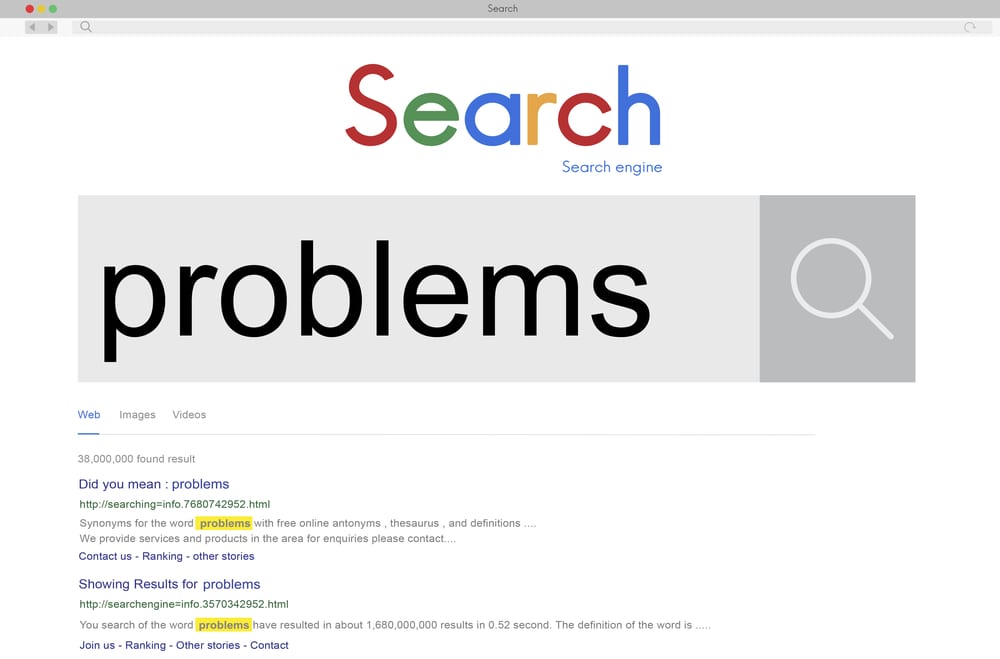Every company with a website knows the importance of search engine optimization (SEO). Stellar content and beautiful web design are useless if your page isn’t easily accessible for your target audience. When potential customers search for your products and services, you want to make sure your page ranks high on search engine result pages (SERPs). Don’t let outdated strategies drag you down. Avoid these common
#1. Using the Wrong Keywords
Scoring high SERPs for your targeted keywords is the very definition of good
While you probably know of a few obvious keywords to optimize for, you may be overlooking several other terms that you can include to strengthen your
- Find related terms and phrases using latent semantic indexing (LSI)
- Include trending keywords related to special events or relevant news stories
- Prioritize the most profitable keywords based on analytics
- Compare your keyword choice with the competition; push one highly competitive keyword and several medium to low competition keywords
#2. Buying Toxic Backlinks
In 2011 and 2012, Google released its Panda and Penguin updates, which changed how certain link building strategies impacted web pages. Penguin, in particular, pushes the importance of high-quality backlinks, while punishing sites that use poor links to try and boost their page rankings. You’ll now face penalties for using the same anchor text too frequently or linking from irrelevant sources.
Though many black hat
Some safer link building strategies include:
- Blogging frequently to produce a wealth of link-worthy content
- Diversifying your anchor text
- Creating a great amount of informative authority content to generate genuine editorial links
- Featuring authority bloggers on your site
- Guest blogging on relevant industry sites
#3. Ignoring Your Local Scene
Small businesses often rely heavily on local customers, yet their
Use local keywords in your content, titles, and meta descriptions. Specify your region, nearby cities, and other relevant local phrases. Include your location and contact information prominently on all pages so visitors and search engines alike will know at a glance where you are.
Include your company and web page on as many locally focused web sites as possible, such as FourSquare, Yelp, and Google Pages. Visit you profile on these sites and make sure the information is comprehensive, accurate, and properly linked to your web page to increase your
#4. Forgetting About Social Media
SEO and social media are closely linked. If you’re trying to boost your
Not only is your social media content relevant to users who prefer these pages for their research and recommendations, they’re a valuable source of earning organic backlinks as well. If you don’t have the resources to maintain multiple social media profiles, prioritize just one or two that are best suited to your industry. See where your competitors are establishing their presence and make sure you’re competitive in this space as well, whether it’s Facebook, Twitter, Instagram, or another site.
#5. Using Low-Quality Content
Gone are the days when you could prioritize quantity over quality. Google’s search algorithms are getting more advanced all the time, and they’re now capable of distinguishing low-quality content with minimal value from well written, carefully researched pieces that have actual value to their readers.
Search engines aren’t the only ones who will reward you for your quality content. Readers appreciate sites that give them in-depth actionable pieces. If you’re offering content that your readers can use, they’ll begin to recognize your business as an authority in your industry. This can help you earn repeat visitors, organic links and references, and sales.
#6. Relying on Older Information
So you’ve invested in well-written copy for your products, services, and company. There’s undeniable value in a clean and compelling “About Us” page and some informative pieces about what you offer, but you can’t stop here. Many businesses recycle this content throughout their web site, duplicating particular sections on more than one page. Unfortunately, Google’s Penguin algorithm will crack down on unoriginal content, even when it’s something you own.
Don’t overlook the importance of fresh, updated information. Revisit your core pages often and make sure they’re still relevant for the industry. If you own an HVAC company, for instance, don’t push your heating services in the peak of summer, or keep your air conditioning front and center through the fall. Update your site regularly through your blog and social media links as well, so there’s always something fresh for web crawlers and live visitors to find on your website.
SEO is still an important consideration in any industry, but it’s crucial that you update your strategy often. New search engine algorithms can punish the very strategies that were once rewarded. Stay ahead of these trends to ensure your website is always well ranked and relevant.
Images: ”Problems Challenge Mistake Recession Trouble Concept /Shutterstock.com“
______________________________________________________________________________
Tweak Your Biz is a thought leader global publication and online business community. Today, it is part of the Small Biz Trends stable of websites and receives over 300,000 unique views per month. Would you like to write for us?
An outstanding title can increase tweets, Facebook Likes, and visitor traffic by 50% or more. Generate great titles for your articles and blog posts with the Tweak Your Biz Title Generator.



